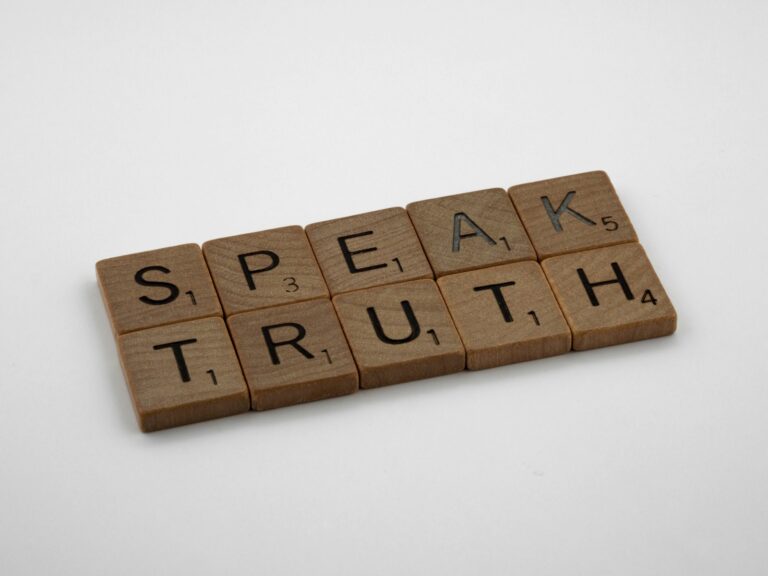Introduction
The Importance of Effective Communication
Communication is an essential aspect of our daily interactions, influencing relationships, work success, and overall well-being. Whether you’re leading a team meeting, negotiating a deal, or having a heart-to-heart with a loved one, effective communication can make all the difference. It’s not just about the words you say but also how you convey them and connect with your audience on a deeper level.
Overcoming Self-Doubt in Communication
Many of us struggle with self-doubt when it comes to expressing ourselves. We may worry about being misunderstood, judged, or not taken seriously. This internal dialogue can hold us back from fully trusting our own communication skills when it truly matters.
However, it’s important to recognize that everyone has their unique voice and perspective to offer. By overcoming self-doubt and embracing your authenticity, you can build confidence in your ability to communicate effectively in any situation.
Navigating the Path to Trusting Your Communication Skills
Trusting your communication skills is not just about speaking confidently but also about listening actively and empathetically. It involves understanding both verbal and nonverbal cues while being open to feedback for continuous improvement. By developing a deep sense of self-awareness and honing your ability to connect with others authentically, you can navigate the path towards trusting yourself in moments when effective communication truly matters.
Understanding the Importance of Effective Communication
Communication is the cornerstone of our interactions with others, playing a vital role in every aspect of our lives. Whether it’s expressing your thoughts and feelings to a loved one, making a persuasive argument at work, or simply engaging in casual conversations with friends, effective communication is key to building relationships, fostering understanding, and achieving goals. It shapes how we connect with people around us and influences the outcomes of our interactions.
In personal relationships, communication serves as the foundation for trust and intimacy. Being able to express yourself clearly and listen actively helps you navigate conflicts, deepen connections, and build stronger bonds with those you care about.
In professional settings, strong communication skills are often cited as one of the most desirable traits in employees. The ability to articulate ideas clearly, convey information effectively, and collaborate with colleagues can propel your career forward and open up opportunities for growth.
Overcoming Self-Doubt to Trust Your Communication Skills
Despite its significance, many individuals struggle with self-doubt when it comes to their communication abilities. This inner voice of uncertainty can hinder your confidence in expressing yourself authentically and assertively.
Overcoming self-doubt requires a shift in mindset – recognizing that everyone has unique strengths and weaknesses in communication. Embracing your individual style and valuing your voice is crucial in building trust in your own abilities.
One common source of self-doubt stems from fear of judgment or rejection by others. It’s natural to feel vulnerable when putting yourself out there through words or gestures.
However, learning to manage these insecurities involves acknowledging them openly and reframing them as opportunities for growth rather than obstacles. By practicing self-compassion and focusing on continuous improvement rather than perfection, you can gradually build confidence in your communication skills.
Trusting your ability to communicate effectively also means honing active listening skills – a fundamental component of successful interpersonal interactions. By tuning into others’ perspectives, demonstrating empathy, and engaging fully in conversations without preconceived notions or distractions, you not only strengthen your connections but also gain valuable insights that can inform how you express yourself in return.
Understanding Your Strengths
Reflect on Past Successful Communication Experiences
Think back to moments when you truly shined in your communication skills. Maybe it was that time you aced a job interview or gave a heartfelt speech at a friend’s wedding. By reflecting on these past successes, you can pinpoint what worked well for you.
Consider the strategies you used, the words you chose, and how you felt during those interactions. Recognizing your strengths in these moments can boost your confidence and remind you that you are capable of effective communication.
Identify Your Unique Communication Style and Strengths
Each person has their own way of communicating that sets them apart. Take some time to evaluate how you naturally tend to communicate. Are you more direct and straightforward, or do you prefer a more diplomatic approach?
Do people often come to you for advice because they appreciate your listening skills? By identifying your unique communication style and strengths, you can leverage them to better connect with others.
Embrace what makes you stand out in your interactions and use it as a tool to build trust in your abilities. Understanding your strengths in communication involves looking back at successful experiences and recognizing the qualities that make your style unique.
By reflecting on past achievements and identifying what sets you apart in how you communicate, you can gain valuable insights into areas where you excel. Trusting in these strengths will empower you to navigate various communication situations with confidence and authenticity.
Building Confidence in Communication
Practice Active Listening to Understand Others Better
Effective communication is a two-way street, and active listening plays a crucial role in understanding others and fostering meaningful connections. When engaged in a conversation, make a conscious effort to listen attentively to the speaker’s words, tone, and body language.
Avoid interrupting or formulating your response while the other person is speaking. Instead, focus on truly comprehending their message before formulating your own thoughts.
Reflective listening, where you summarize or paraphrase what the speaker said, can demonstrate your commitment to understanding their perspective. Furthermore, practicing empathy is key to becoming a better listener.
Put yourself in the other person’s shoes and try to grasp their emotions and intentions behind their words. By showing genuine interest in what others have to say and validating their feelings, you not only improve your communication skills but also build trust and rapport with those around you.
Engage in Public Speaking or Group Discussions to Boost Confidence
Public speaking ranks high among common fears for many individuals, but facing this fear head-on can significantly boost your confidence in communication. Whether it’s presenting at work meetings, participating in group discussions, or joining a Toastmasters club, exposing yourself to public speaking opportunities can help you overcome insecurities and refine your verbal communication skills.
Practice makes perfect, so seize every chance to speak up and share your thoughts with others. Moreover, engaging in group discussions allows you to observe different communication styles and learn from your peers.
By actively participating in conversations within a group setting, you not only enhance your ability to articulate ideas but also gain valuable feedback on how others perceive your communication style. Embrace these opportunities as stepping stones toward becoming a more confident communicator who can effectively convey messages with clarity and conviction.
Overcoming Communication Barriers
Recognize and Address Fear of Judgment or Rejection
Communication can be challenging, especially when we fear being judged or rejected by others. It’s essential to acknowledge these fears and understand that they are natural human emotions. By recognizing these fears, we can begin to address them head-on.
One effective way to tackle this fear is by reframing our mindset – instead of focusing on potential negative outcomes, shift your perspective to see communication as an opportunity for growth and connection. Remember that everyone has insecurities, and most people are more concerned about themselves than judging others.
Moreover, it’s crucial to practice self-compassion when facing the fear of judgment or rejection in communication. Treat yourself with kindness and understanding, just as you would a friend in a similar situation.
Building self-confidence and resilience through positive self-talk can help in overcoming these barriers. Additionally, seeking support from trusted friends or mentors who can provide constructive feedback and encouragement can boost your confidence in navigating challenging communication situations.
Learn to Adapt Communication Style Based on the Audience or Situation
Adapting your communication style based on the audience or situation is a valuable skill that can enhance your effectiveness as a communicator. Different people have varying communication preferences and styles, so being able to flexibly adjust how you communicate is key. When interacting with diverse audiences, take time to observe their verbal and nonverbal cues to tailor your approach accordingly.
For instance, speaking in simpler terms when communicating with individuals who may not be familiar with technical jargon shows adaptability and consideration. Furthermore, adapting your communication style also involves understanding the context of the situation you are in.
Whether it’s a formal business meeting or a casual conversation with friends, matching your tone, language, and level of formality to the environment can make interactions more comfortable for everyone involved. Being receptive to feedback from others about how your communication style is perceived can also provide valuable insights for improvement and growth as a communicator.
Utilizing Nonverbal Cues Effectively
When it comes to communication, words are just one piece of the puzzle. Nonverbal cues play a crucial role in conveying your message effectively. Your body language, tone of voice, and facial expressions can speak volumes without you saying a word.
For instance, maintaining eye contact shows attentiveness and sincerity, while fidgeting may indicate nervousness or discomfort. Being mindful of these nonverbal signals can significantly enhance your overall communication impact.
Importance of Body Language, Tone, and Facial Expressions in Communication
Your body language accounts for a significant portion of how your message is received by others. Crossing your arms may signal defensiveness or closed-off attitude, whereas facing someone directly with an open posture conveys openness and engagement. Similarly, the tone of your voice can influence the emotional undertone of your words.
A warm and friendly tone can make others feel at ease and receptive to what you’re saying. Facial expressions also play a key role in communication.
A genuine smile can establish rapport and convey warmth, while a furrowed brow may indicate confusion or concern. Being aware of these nonverbal cues allows you to align them with your verbal message for a more coherent communication experience.
Practicing Assertiveness Without Aggression in Verbal Interactions
Assertiveness is an essential skill in effective communication but often misunderstood as aggression. Assertive communication involves expressing your thoughts, feelings, and needs clearly and respectfully without infringing on others’ rights.
It’s about standing up for yourself while also considering the perspective of others. To practice assertiveness without aggression, focus on using “I” statements to express yourself directly without blaming or accusing others.
Maintain a calm tone even when discussing sensitive topics and listen actively to the other person’s viewpoint. By finding the balance between being firm in expressing yourself and respectful towards others, you can communicate assertively yet tactfully in any situation.
Enhancing Clarity and Impact
Using Storytelling Techniques to Make Your Message Memorable
Storytelling is a powerful tool that can captivate your audience and make your message stick in their minds long after the conversation ends. By incorporating personal anecdotes, examples, or narratives into your communication, you create a connection with your listeners on an emotional level.
People are more likely to remember stories compared to dry facts or statistics. When crafting your story, consider the emotions you want to evoke and the main takeaway you want your audience to remember.
Keep it relevant to the topic at hand and ensure that it supports the main points you’re trying to convey. Moreover, using storytelling techniques can help simplify complex ideas or concepts, making them easier for others to grasp and retain.
By structuring your message as a narrative with a clear beginning, middle, and end, you guide your audience through a logical progression of ideas. This approach engages different parts of the brain and enhances comprehension and retention.
Remember to keep your stories concise and impactful – focus on quality over quantity. Practice delivering your stories with enthusiasm and sincerity to leave a lasting impression on your listeners.
Seeking Feedback from Trusted Individuals for Improvement
Feedback is essential for growth and improvement in any aspect of life, including communication skills. Seeking feedback from trusted individuals – such as friends, mentors, or colleagues – allows you to gain valuable insights into how others perceive your communication style. Be open-minded when receiving feedback; view it as an opportunity for learning rather than criticism.
Constructive feedback can help you identify areas for improvement, such as clarity, tone of voice, body language, or overall effectiveness. When asking for feedback, be specific about what aspects of your communication you want input on.
Whether it’s presentation skills, storytelling abilities, or active listening techniques, tailor your request accordingly. Encourage honest feedback by creating a safe space for others to share their thoughts openly.
Take notes on the feedback received and reflect on how you can implement suggested changes moving forward. Continuous self-improvement based on constructive criticism fosters growth in communication proficiency over time.
Embracing Vulnerability
Being open about uncertainties or mistakes in communication
Communication is not always perfect, and it’s okay to acknowledge that. Embracing vulnerability means being open and honest about your uncertainties or mistakes in communication.
When you admit that you may not have all the answers, it shows humility and authenticity. Sharing your vulnerabilities can actually strengthen connections with others because it humanizes you and makes you more relatable.
People appreciate genuine conversations, even when they involve admitting to errors or seeking clarification on a misunderstood point. One way to demonstrate openness about uncertainties is by using phrases like, “I’m not entirely sure, but I believe…” or “I may have misunderstood; could you please clarify?” By acknowledging that you are not infallible, you invite others to engage in a collaborative dialogue rather than a one-sided exchange.
This openness fosters an environment of trust and mutual understanding, laying the foundation for more effective communication moving forward. Remember, vulnerability is not a sign of weakness but rather a show of strength in owning up to imperfections.
Building trust through authenticity and transparency
Authenticity and transparency are key components in building trust within any relationship, including those formed through communication. When you communicate authentically, speaking from your true thoughts and emotions without pretense, others are more likely to perceive your message as genuine and trustworthy. Transparency involves being clear and upfront about your intentions, motives, and any relevant information that may impact the conversation or relationship.
To build trust through authenticity, focus on expressing yourself sincerely without trying to hide behind a façade of perfection or invulnerability. Share personal anecdotes or experiences that resonate with the topic at hand to establish a deeper connection with your audience.
Transparency comes into play by providing relevant context or background information when discussing complex subjects or making decisions that affect others. By consistently practicing authenticity and transparency in your communication efforts, you create a solid foundation of trust that can withstand challenges or misunderstandings along the way.
Conclusion
Recap the importance of trusting your own ability to communicate
Communication is the cornerstone of human interaction. It shapes our relationships, influences our success, and defines our impact on the world. Trusting in your ability to communicate effectively is not just a skill; it’s a superpower that can propel you towards your goals.
When you believe in yourself and your message, others are more likely to listen and connect with you on a deeper level. Confidence in communication opens doors to opportunities and fosters understanding among diverse individuals.
Encouragement for continuous growth and improvement
Remember, communication skills are not innate talents but cultivated abilities that can always be honed and refined. Embrace each interaction as a chance to learn and grow. Seek feedback from others, reflect on your experiences, and be open to trying new approaches.
Every conversation is an opportunity for self-improvement. As you continue on your journey of mastering communication, stay curious, stay patient with yourself, and celebrate every small victory along the way.
In a world where connections matter more than ever, cultivating strong communication skills is a lifelong investment in both personal fulfillment and professional success. So keep speaking up, listening actively, and sharing your authentic voice with confidence.
Trust yourself to navigate any conversation or challenge that comes your way because you have the power within you to communicate effectively when it truly matters. Embrace the journey of growth with optimism knowing that each step forward brings you closer to becoming the communicator you aspire to be.






